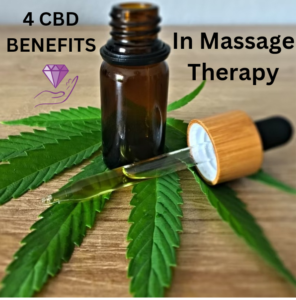Healing Hearts How Massage Therapy Can Soothe Emotional Trauma
Discover the Calming Power of Touch
Are you struggling with emotional trauma? You’re not alone. Many people carry invisible wounds that can be just as debilitating as physical injuries. But there’s hope. In recent years, massage therapy has been gaining recognition as a powerful tool for healing emotional trauma. Through the soothing power of touch, you can find relief and start your journey toward emotional well-being.
This blog post will explore the benefits of massage therapy for emotional trauma. You’ll learn how it works, the different types of massage that can help, and practical tips for integrating it into your life. Let’s uncover the healing potential of massage therapy together.
RESERVE YOUR HEALING MASSAGE NOW
What is Emotional Trauma?
Unpacking Emotional Trauma
Before we dive into the benefits of massage therapy, it’s essential to understand what emotional trauma is. Emotional trauma occurs when an individual experiences a distressing event or series of events that overwhelm their ability to cope. This can include anything from childhood abuse to witnessing a tragic accident.
Symptoms of Emotional Trauma
People with emotional trauma may experience a variety of symptoms, including anxiety, depression, flashbacks, and difficulty trusting others. These symptoms can be persistent and may interfere with daily life.
Long-Term Effects
If left untreated, emotional trauma can have long-term effects on both mental and physical health. It can lead to chronic stress, cardiovascular issues, and even a weakened immune system. That’s why finding effective ways to manage and heal from trauma is so important.
How Massage Therapy Works
The Science Behind Massage
Massage therapy involves manipulating the muscles and soft tissues of the body to promote relaxation and healing. But how does it work on an emotional level?
Release of Endorphins
One of the key benefits of massage is the release of endorphins, the body’s natural painkillers. These chemicals help reduce pain and promote a sense of well-being. They can be particularly beneficial for those dealing with emotional trauma, as they provide a natural mood boost.
Reduction of Cortisol Levels
Cortisol is known as the stress hormone. High levels of cortisol can contribute to anxiety and other negative emotions. Massage therapy has been shown to reduce cortisol levels, helping to alleviate stress and promote relaxation.
Types of Massage for Emotional Healing
Swedish Massage
Swedish massage is one of the most popular forms of massage therapy. It involves long, flowing strokes designed to relax the entire body. This type of massage is excellent for reducing stress and promoting overall relaxation, making it a good choice for those dealing with emotional trauma.
Deep Tissue Massage
Deep tissue massage targets the deeper layers of muscle and connective tissue. It involves slower, more forceful strokes and is ideal for releasing chronic muscle tension. This type of massage can be particularly beneficial for those who hold their stress and trauma in their muscles.
Aromatherapy Massage
Aromatherapy massage combines the benefits of massage with the healing properties of essential oils. Different oils can be used to address specific emotional issues, such as anxiety or depression. The combined effect can provide a powerful sense of relaxation and emotional relief.
The Emotional Benefits of Massage
Improved Mood
Regular massage therapy sessions can lead to an overall improvement in mood. The release of endorphins and reduction in cortisol levels work together to create a more positive emotional state. This can be especially helpful for those struggling with depression or anxiety.
Enhanced Emotional Awareness
Massage therapy encourages mind-body awareness. By focusing on the sensations in your body, you become more in tune with your emotions. This heightened awareness can help you better understand and process your feelings, leading to improved emotional health.
Strengthened Resilience
Over time, regular massage therapy can help build emotional resilience. By consistently reducing stress and promoting relaxation, you can better cope with life’s challenges and recover more quickly from emotional setbacks.
Practical Tips for Integrating Massage into Your Routine
Finding the Right Therapist
It’s crucial to find a massage therapist who is experienced in working with emotional trauma. Look for someone who is compassionate, understanding, and knowledgeable about the specific needs of trauma survivors.
Setting Realistic Expectations
While massage therapy can provide significant benefits, it’s essential to have realistic expectations. Healing from emotional trauma is a process, and it may take time to see significant improvements. Be patient with yourself and your progress.
Combining Massage with Other Therapies
Massage therapy can be most effective when combined with other forms of treatment, such as talk therapy or mindfulness practices. Consider incorporating these complementary therapies into your routine to maximize your healing potential.
Creating a Relaxing Environment at Home
Establishing a Calm Space
Creating a calm and relaxing environment at home can enhance the benefits of massage therapy. Consider setting up a dedicated space where you can relax and unwind, free from distractions and stressors.
Using Essential Oils
Incorporating essential oils into your home environment can help create a soothing atmosphere. Lavender, chamomile, and eucalyptus are all excellent choices for promoting relaxation and emotional healing.
Practicing Mindfulness
Mindfulness practices, such as meditation or deep breathing exercises, can complement the benefits of massage therapy. Try incorporating these practices into your daily routine to enhance your overall sense of well-being.
Building a Support Network
Connecting with Others
Building a support network can be an essential part of healing from emotional trauma. Reach out to friends, family, or support groups to share your experiences and seek encouragement.
Attending Support Groups
Support groups can provide a safe space to share your experiences and connect with others who understand what you’re going through. Look for local or online support groups focused on emotional trauma and healing.
Seeking Professional Help
If you’re struggling to cope with emotional trauma on your own, consider seeking professional help. A therapist or counselor can provide valuable guidance and support on your healing journey.
The Role of Self-Care in Emotional Healing
Prioritizing Self-Care
Self-care is crucial for emotional healing. Make time for activities that bring you joy and relaxation, whether it’s reading a book, taking a walk, or enjoying a hobby.
Practicing Self-Compassion
Be kind to yourself as you navigate your healing journey. Recognize that healing takes time and that it’s okay to have setbacks. Practice self-compassion and remind yourself that you deserve care and support.
Setting Boundaries
Setting healthy boundaries is essential for emotional well-being. Learn to say no to activities or relationships that drain your energy and focus on what nurtures and supports you.
The Importance of Consistency
Regular Massage Sessions
Consistency is key when it comes to massage therapy. Schedule regular sessions to maintain the benefits and support your ongoing healing.
Establishing a Routine
Incorporate massage therapy into your regular self-care routine. This can help create a sense of stability and support your overall emotional well-being.
Tracking Your Progress
Keep track of your progress and celebrate your achievements along the way. Recognize the positive changes in your emotional health and use them as motivation to continue your healing journey.
Conclusion
Massage therapy offers a powerful and effective way to support emotional healing. By addressing the physical manifestations of stress and trauma, you can find relief and start on the path toward emotional well-being. Whether you’re new to massage therapy or looking to deepen your practice, integrating regular sessions into your routine can provide significant benefits for your mental and emotional health.
If you’re ready to explore the healing power of massage therapy, consider booking a session with a qualified therapist. Your journey to emotional healing begins with a single step. So take that first step towards a healthier and happier you by embracing the benefits of massage therapy. Your mind and body will thank you for it. Keep pushing forward on your healing journey, and know that with consistent self-care and support, you can overcome emotional trauma and create a brighter future for yourself. Remember to be patient with yourself and celebrate every moment of progress along the way. You deserve all the love, care, and support in the world as you work towards emotional healing. You are capable, strong, and deserving of a life filled with joy, peace, and well-being.
REFERENCES:
“The Power of Massage Therapy for Trauma and Mental Health” by Laura Leavell, PsyD – GoodTherapy – Find the Right Therapist
“Massage Therapy for Anxiety and Stress” – American Massage Therapy Association AMTA | American Massage Therapy Association (amtamassage.org)
“Benefits of Massage” – National Center for Complementary and Integrative Health (NCCIH) 4. “Self-Care Strategies for Managing Emotional Distress” – World Health Organization (WHO)
“Building a Support Network After Trauma” – Psychology Today
“Emotional Healing: How to Recover from Trauma Faster with These 5 Strategies” by Jennifer Wolkin, PhD – Forbes.com.
“The Importance of Consistency in Self-Care” – Psychology Today
“Massage Therapy for Emotional Healing: A Comprehensive Guide” by Alyson Schuster, LMT – Massage Magazine.
“How Mindfulness Can Help with Emotional Healing” – Mindful.org
“Creating a Relaxing Home Environment for Emotional Healing” – The Chopra Center.
“Essential Oils for Emotional Healing and Well-Being” – Healthline.com End of Section.

